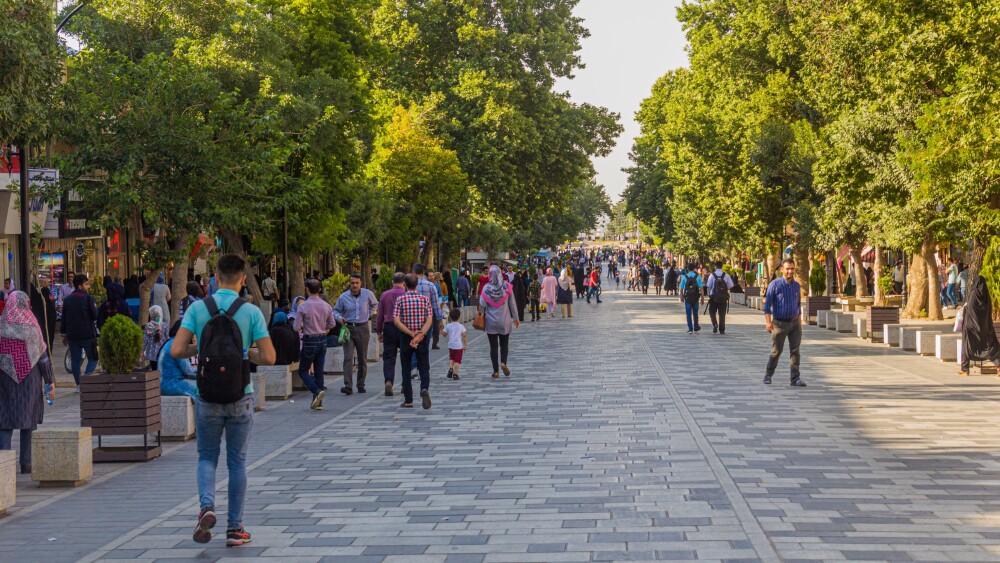As the Iranian regime reels from a water shortage, blackouts, runaway inflation, and the embarrassment of its defeat in the June 2025 twelve-day war with Israel, it now has a new problem: Iranian university students and ordinary citizens staged large protests this week in the western city of Hamadan against the presence and behavior of Iraqi students, whom they allege are affiliated with Iranian proxy militants.
In recent years, the Iranian government encouraged and supported tens of thousands of Iraqis to enroll in Iranian universities—a move that many Iranians see as granting young members of pro-Tehran militias in Iraq access to Iran’s educational system while Iran sinks deeper into economic crisis and declining living standards.
Iranians accuse some Iraqi students of harassing women, both on campuses and in the streets, proposing Shi’ite temporary marriages, and even soliciting prostitution. Frustration exploded into protests on October 6 and 7, 2025, in Hamadan, home to Bu-Ali Sina University, which Iran established before the 1979 revolution in cooperation with France.
Iranians accuse some Iraqi students of harassing women, both on campuses and in the streets.
Iranian opposition social media accounts amplified the news of the protests as a sign of growing resistance to government policies. One post read, “Following repeated harassment of Iranian girls by Iraqi students at Bu-Ali University in Hamadan and throughout the city, angry residents poured into the streets after a call by a local blogger to protest the presence of Iraqis. #PeopleOfIran, let us rise in support of the people of Hamedan.”
Officials acknowledge that between 50,000 and 80,000 Iraqi students study at Iranian universities, an unusually large number by Middle Eastern standards. Iranian officials insist that 90 percent of these students cover their own costs and bring much-needed foreign currency into the country. Yet evidence shows that many belong to or remain affiliated with pro-Tehran militia groups in Iraq.
In 2023, Mohammad Moghimi, the dean of Tehran University, defended the enrollment of Hashd al-shaabi militia members. He confirmed that both the Iraqi and Iranian governments fund the initiative. Moghimi said, “The Popular Mobilization Forces are one of the ‘highly influential institutions in Iraq’s future’ and … the Iraqi government has allocated a ‘substantial foreign-currency budget’ for the education of its members.”
Since 2022, Iranian government media have reported repeatedly on Iraqi officials signing agreements to send students to Iran. But because the Hashd al-shaabi dominates many Iraqi education departments, it is unclear who authorizes the dispatch of thousands of students.
Iranian opposition activists posted photos of Iraqi students driving sports cars on campuses and complained that universities even allow them to park inside, while Iranian students must leave their cars outside. Other reports claim that Iraqi students skip dormitory waiting lists, while Iranian students cannot obtain accommodation.
Many Iranians suspect that authorities bring in pro-regime students from Iraq to deploy them against Iranian students and the public if new anti-government protests erupt.
Many Iranians suspect that authorities bring in pro-regime students from Iraq to deploy them against Iranian students and the public if new anti-government protests erupt.
Reports from earlier uprisings indicated that Iraqi and Lebanese militiamen joined security forces to crush demonstrations. Iranians believe these “battle-hardened” foreign fighters would use lethal force. While Iranian security forces may hesitate to kill fellow citizens, Hezbollah fighters, Popular Mobilization Force members, or Afghan militiamen would show no restraint. Tehran has repeatedly used proxy forces from other countries, including Hezbollah and Afghan militias, in conflicts such as the Syrian war.
One Iranian influencer wrote on X, “Do not leave #Hamadan alone. These Iraqis are members of the Iraqi Popular Mobilization Forces who entered Iran as students. Iran, rise up—we must not remain silent any longer. The only answer to our pain is the street.” Protesters in Hamadan chanted pro-Pahlavi slogans, for Crown Prince Reza Pahlavi, a dangerous sign for the regime.
Some argue that the Islamic Republic even welcomes the idea of replacing dissatisfied Iranians with Iraqis, Syrians, or Afghans. Estimates suggest that eight million illegal Afghan migrants live in Iran, alongside two million legal residents—more than 10 percent of the population. At the same time, hundreds of thousands of Iranians have emigrated in recent years because of economic hardship and political repression.
It is unclear whether the Hamadan protests will spread to other universities or cities. But the government clearly fears renewed unrest as the economic crisis deepens, and international sanctions intensify. Even regime politicians and commentators now warn in state-controlled media of the people’s growing anger.







